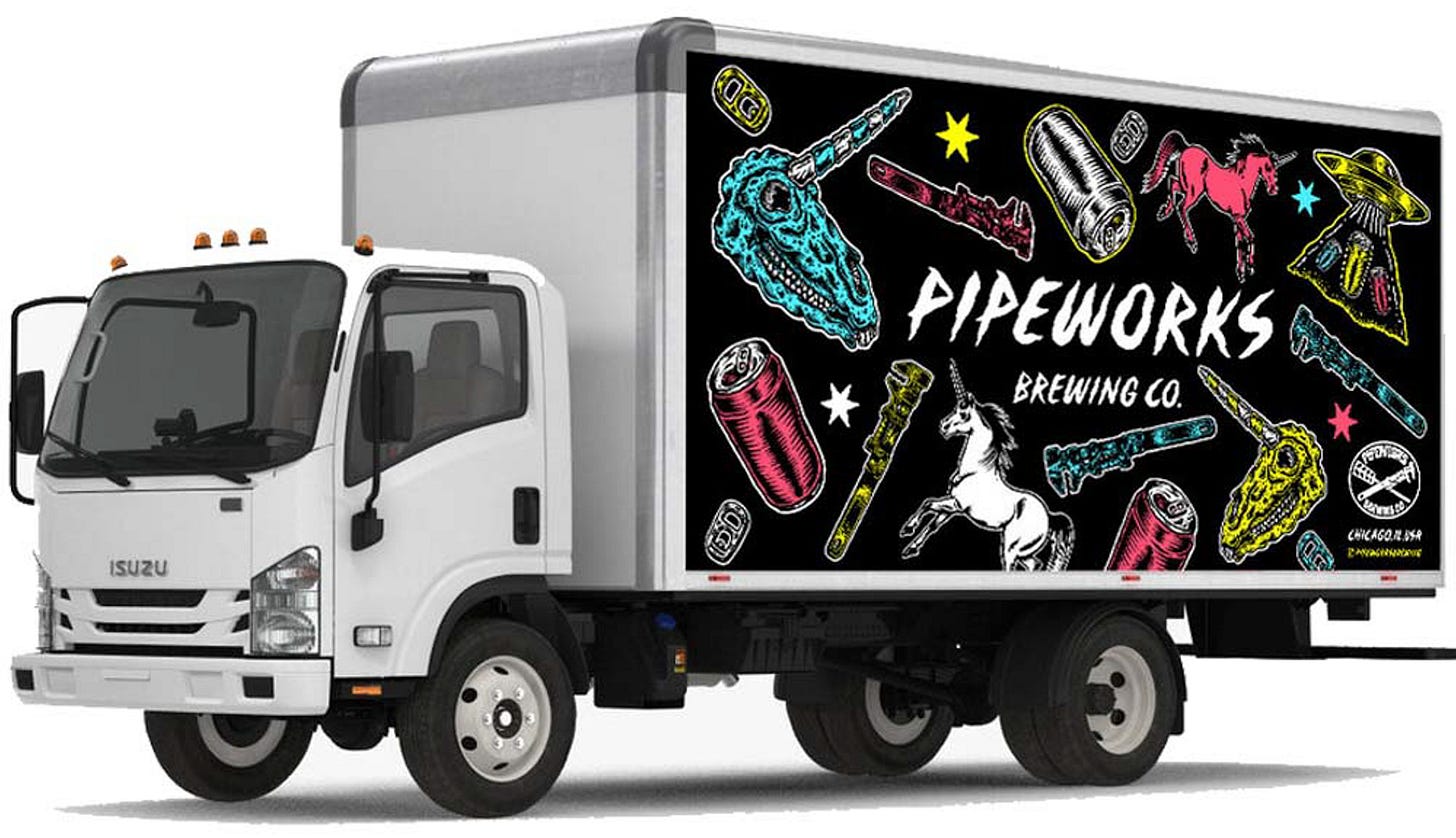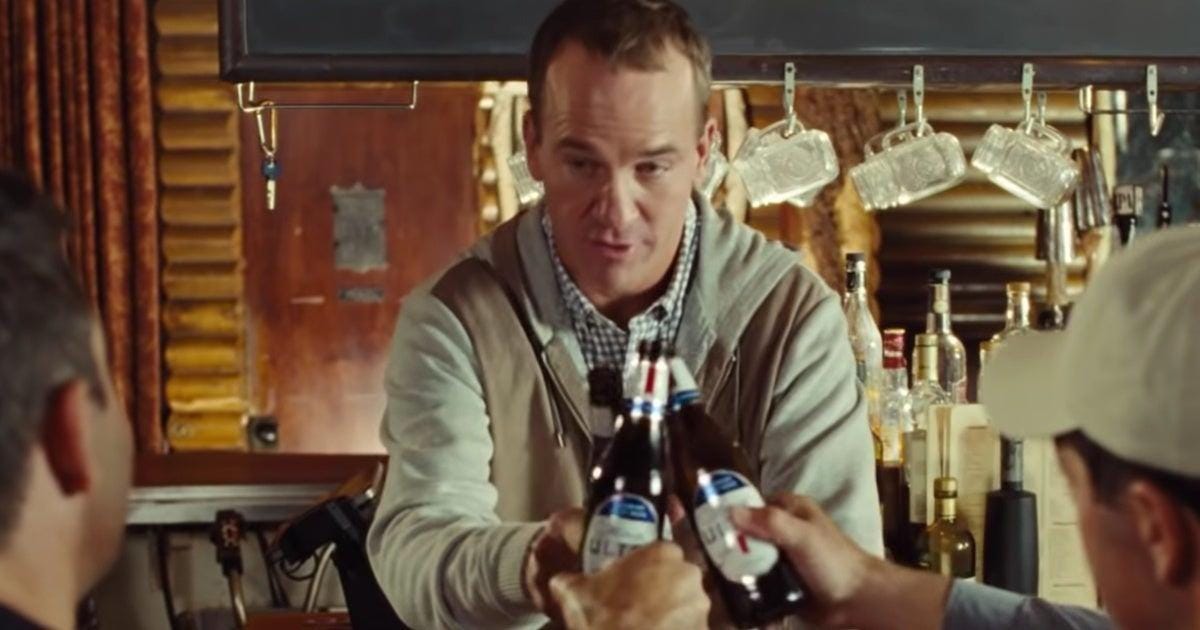The Beer Industry's Franchise Tag
In the NFL, the Franchise Tag protects teams from losing their star player in free agency and arguably helps maintain a competitive balance in the league. In the beer industry, Franchise Laws similarly protect distributors from losing their suppliers to a competitor. What the franchise tag and franchise laws have in common includes controversy over their merits and fairness due to these limitations placed on free market movement. In the NFL, they make it harder for a “franchise player” to sign a long-term contract with a new team. In Beer, they make it difficult, expensive, or even impossible to change distributors.
Strategizing and thriving in the beer industry is aided by a strong understanding of its three tier distribution system. Whether a craft brewery is using a wholesaler, or actively avoiding one, an appreciation for the dynamics will help ensure the best long term business decisions are made. While this system of taxation and regulation of beer distribution dates back to the repeal of prohibition in 1933, it’s more recent (1970s & 1980s) addition of Franchise Laws causes most of the friction between suppliers and distributors, trade associations, and lawmakers. Having spent an equal amount of my 15 years in the industry on each side, I empathize with both and want to provide a starter for anyone looking to better understand one of the most confusing conflicts between sides: switching distributors.
Controlling Ones Own Destiny
Thankfully in most, but far from all states, breweries have the option to self-distribute their beer to retailers. This allows them to grow their reach beyond their walls, while building relationships with retailers and maintaining more control over their messaging and product. Many will point to the extra margin saved by cutting out the middle man, which is true, but running vans around the city & suburbs only dropping off a limited amount of cases per store is anything but free and can only take a brewery so far.
Most brewers also don’t dream of being a logistics company forever, calculating the most efficient routes on delivery days, while ensuring they’re not losing money in doing so. If and when it’s time to partner up with a distributor, there’s two primary types that I’ll oversimplify things down to: Big and Small. Each come with an equally intriguing set of pro’s and con’s depending on the brewery’s stage in their life cycle and future aspirations.
Size Does Matter
Most geographies will have approximately two “big” distributors. There’s typically the “Blue House” which carries MolsonCoors’ brands, including Miller, Blue Moon, and often carries Constellation, Heineken, and many others. Then there’s the “Red House” which is aligned with (or even owned by) AB Inbev’s portfolio including Bud, Busch, Michelob, and acquired “craft” brands like Goose Island, Elysian, and Golden Road. When craft beer is on the same trucks as these behemoths, it’s given the opportunity to reach practically any retailer. The sky is the limit for a young, growing brand aligned with a big distributor, logistically speaking of course.
But not everyone has those wide aspirations for their business, nor the mass market appeal or pricing to make it this deep in the market. Small brands may not need the reach as much as they need passion for the product, agility, and share of mind that the large distributors can’t always offer a small brand. Thankfully boutique distributors have risen and pounced on this opportunity to provide emerging brands access to market and a like-minded sales team. While smaller distributors can still deliver to certain chain stores on more limited basis, their point of differentiation is more so geared toward servicing independent retailers whose focus is more around selection, curation, freshness, temperature control, and other points of differentiation. Not price.
Note: There’s certainly medium-sized distributors and many different degrees of small, but I’m using Small and Big for simplicity of explaining.
The Franchise Tag
While it’s great that small brands have distributor choices who help launch and grow brands at their earliest stages, a brand’s reach may become baked with their current wholesaler and the only opportunity to reach a broader segment of customers requires changing distributors. In most industries, that means giving written notice, but in beer there’s Franchise Law protection in the majority of states. This generally protects distributors who helped grow a brand from losing it without at least receiving compensation for the value of its distribution rights. Every state works very differently, so its a near impossible topic write about (yet here I am) but scenarios for distribution contracts are typically governed by these variations:
“Marriage for Life” - Breweries cannot change distributors without being released by the distributor or without good cause that could need to be proven out in a long legal battle.
Fair Market Value - Breweries can give notice of their intent to leave, but cannot change distributors unless the fair market value for the brand rights are agreed to and exchanged. The value may be calculated using a multiple of the distributor’s annual earnings on the brand and could require an independent arbitrator to settle on the terms.
No Franchise Law - Breweries can provide notice and leave a distributor with no compensation necessary.
Making Dollars and Sense of it all
Small craft breweries have a history of growing frustrated with franchise laws because of the lack of freedom and limited options to hold their distributor accountable. Appreciating or at least understanding their fundamental purpose requires taking a step outside the craft beer bubble and thinking on a macro stage. If any brewery could leave their distributor at will, then a brewery like Anheuser-Busch, and to a lesser extent Molson Coors, has an even more dangerous amount of power to wield on their distributor, and in turn, the overall marketplace.
The most extreme, historical form of this “undue influence” would be for the large brewer to force wholesalers to stop carrying small brands by threatening to take their majority share of volume elsewhere. By choking out a major market access point for craft brewers, the largest brewers would not only face less competition, but also would receive even greater focus from their wholesaler due to less “noise” in their portfolio. Franchise laws set out to avoid this hand from being played and thus, small independent brewers have to play by the same rules.
But that shouldn’t and doesn’t stop small breweries from fighting for better rights for small & medium businesses, while also considering the downstream impact of getting what they want. If in theory, a craft brewery could leave a distributor anytime they want for no compensation let’s say, are they going to get as many distributors, small or large, wanting to take a chance on them? Would distributors still be willing to invest in the brand upfront with their time, focus, and helping pay for point-of-sale like tap handles, signage, sales incentives, etc.?
To uphold the core intentions of these laws, but to provide small & mid-sized businesses their own protection from getting lost in a distributor’s portfolio, some state laws have allowed exceptions for craft breweries. These caveats could get breweries around “marriage for life” or franchise protection entirely if they fall under thresholds based on their annual production (200K BBLs in WA) or their volume as a percentage (10% in IL) of the distributor’s portfolio. This has been and likely will continue to be a key area of lobbying for craft breweries in the future.
Final Drive
The services of a beer distributor are in high demand, but starting an operation is extremely hard. There’s a “chicken or the egg” challenge that must be overcome in order to have any chance at success. How do you attract great brands with no infrastructure? How do you build the right infrastructure without great brands?
A lot of capital and a long investment horizon must be in place to find eventual success, but once you do, you have the opportunity to build tremendous value. Franchise laws protect that value for distributors by ensuring that the largest brewers can’t act monopolistically and smaller brewers can’t simply walk away and keep all that value for themselves. In turn, distributors aren’t disincentivized from taking chances on small brewers. But not all brands can maintain an upward trajectory forever, becoming susceptible to getting lost in the distributor’s priorities. With or without franchise laws, large beer distributors will always want smaller, high margin brands on their trucks, but battles will continue to play out at the state level as small brands fight for the ability to navigate their way out of soured partnerships.
Craft breweries need to take their time when researching and meeting perspective distributors, making sure they’re thinking far into the future when it comes to their goals and aspirations. A distribution contract should be treated as “marriage for life” regardless of the state’s franchise law, in the sense that the work toward a prosperous partnership doesn’t end when the contract is signed. For both parties, the work has just begun and can never stop. Focus on building genuine relationships filled with over-communication where as much or more work is being put in as you hope to get out. When that happens consistently, the pieces have a tendency to fall into place.









